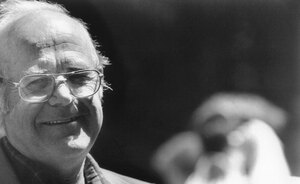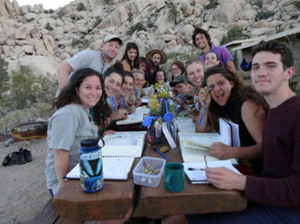Protecting the land. Preserving a legacy.

As a teacher, Kenneth Norris was legendary for his ability to inspire students. He taught the popular “Field Quarter” class in UCSC’s environmental studies program, a wide-ranging and rigorous course in the natural history of California.
Now, a $2 million gift from the David and Lucile Packard Foundation is honoring the memory of Norris, who died in 1998, while helping to ensure that UCSC remains a leader in natural history programs.

The funds will also help UCSC prepare students to become tomorrow’s environmental leaders.
The gift will provide for two endowments, one that funds a new Kenneth S. Norris Center for Natural History, and another that supports the Natural History Field Quarter, an immersive course that Norris founded at UCSC more than 40 years ago.
“UC Santa Cruz is a pioneer in hands-on learning and field education,” said Chancellor George Blumenthal. “This very generous gift guarantees that Ken Norris’s legacy for creating transformative student experiences will continue for many years to come.”
Both endowments fall within the Environmental Studies department. The gift will also establish a competitive grants program to support natural history research projects undertaken by accomplished undergraduates.
The David and Lucile Packard Foundation grant is one of the largest contributions to the Student Experience Initiative of the $300 million Campaign for UC Santa Cruz. The Packard Foundation was created in 1964 by David Packard, co founder of Hewlett-Packard, and his wife, Lucile, a lifelong community volunteer. For more than 50 years, the David and Lucile Packard Foundation has worked with partners around the world to improve the lives of children, families, and communities—and to restore and protect our planet.
Those who wish to support the projects mentioned in the new Packard Foundation gift may give to the Museum of Natural History and the Environmental Studies Natural History Field Quarter Endowment.